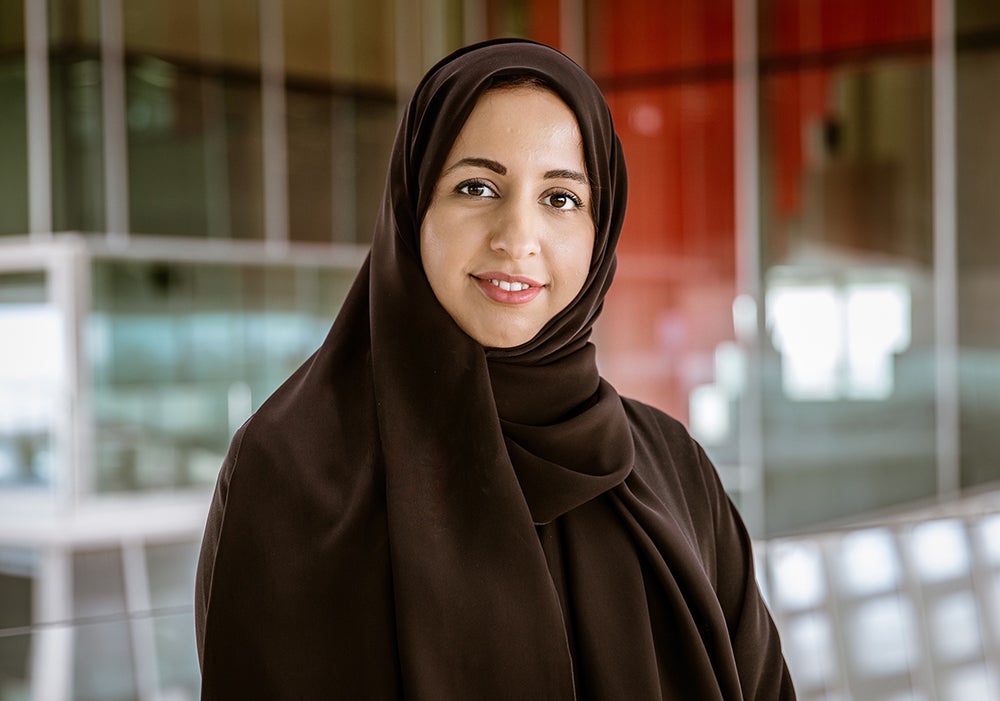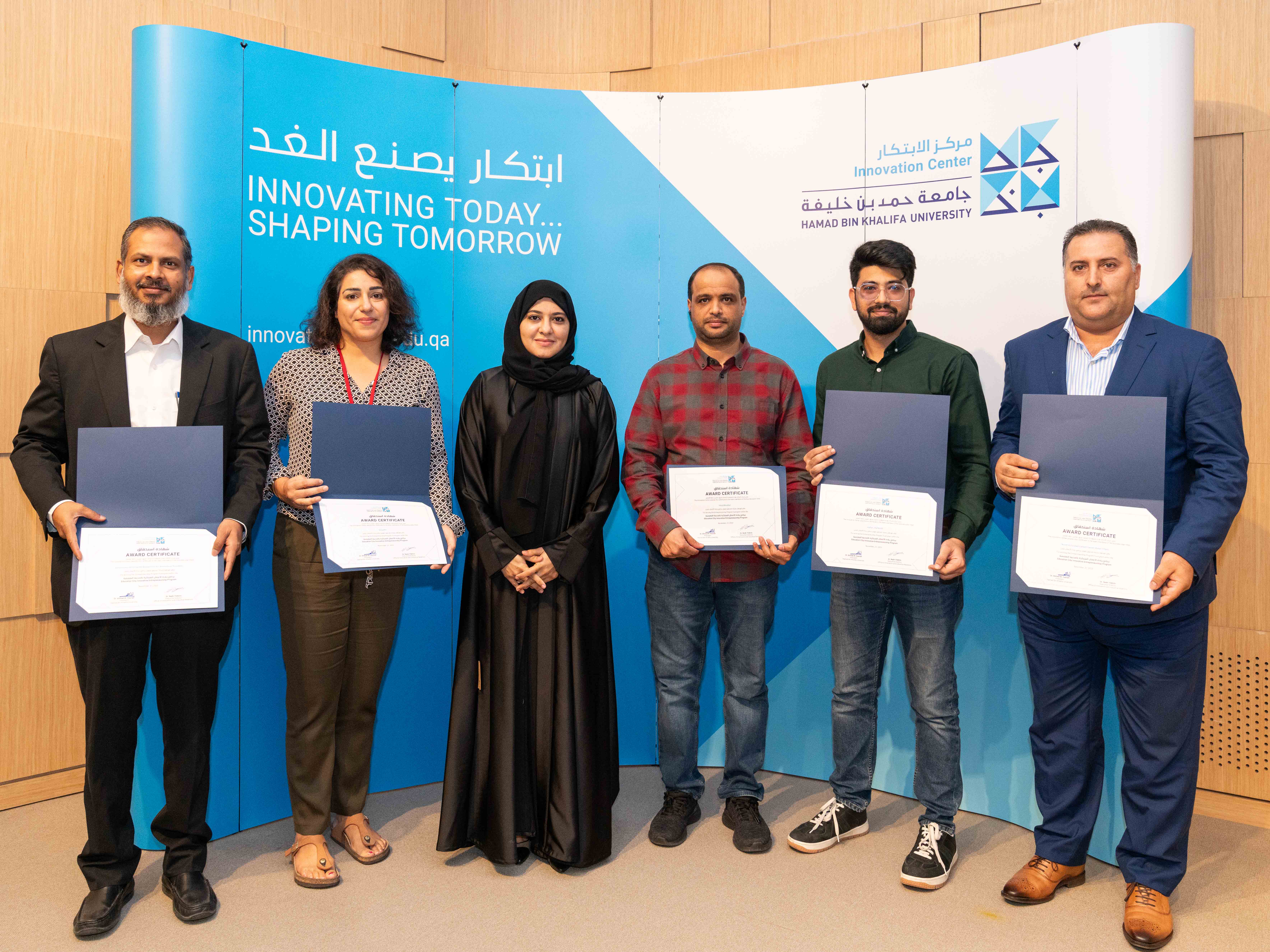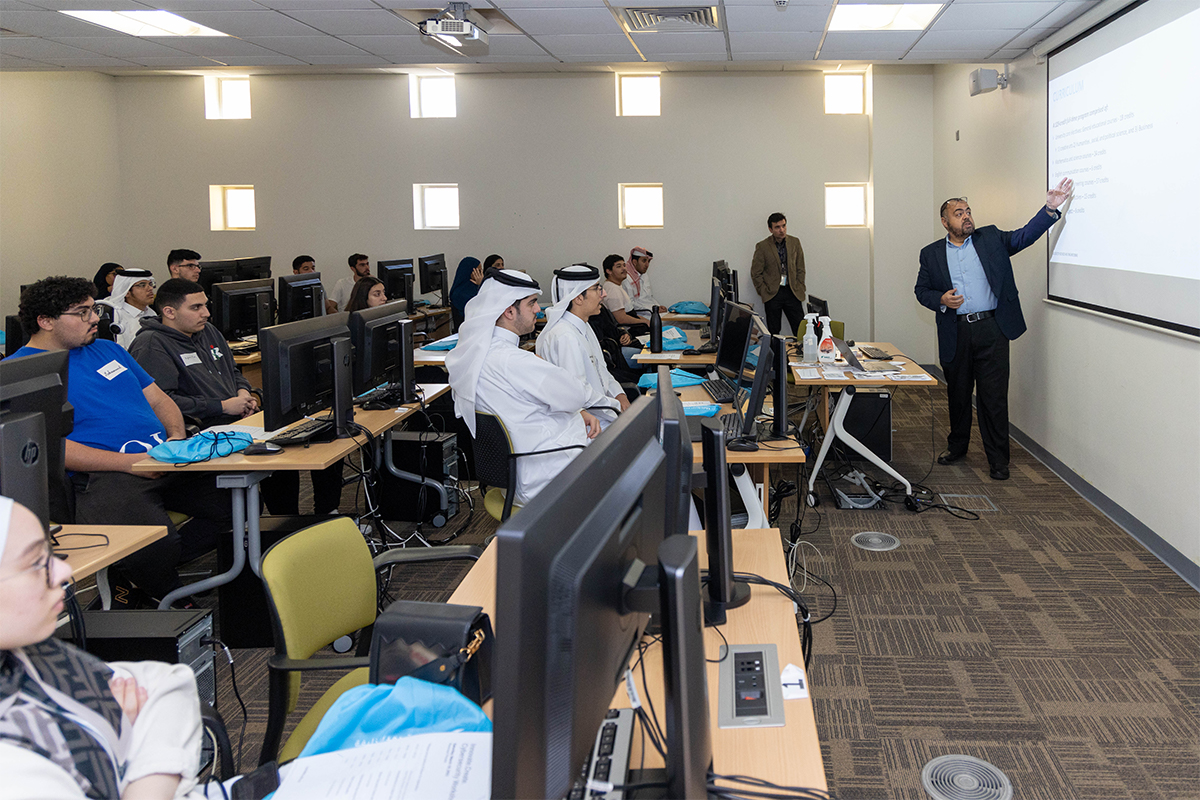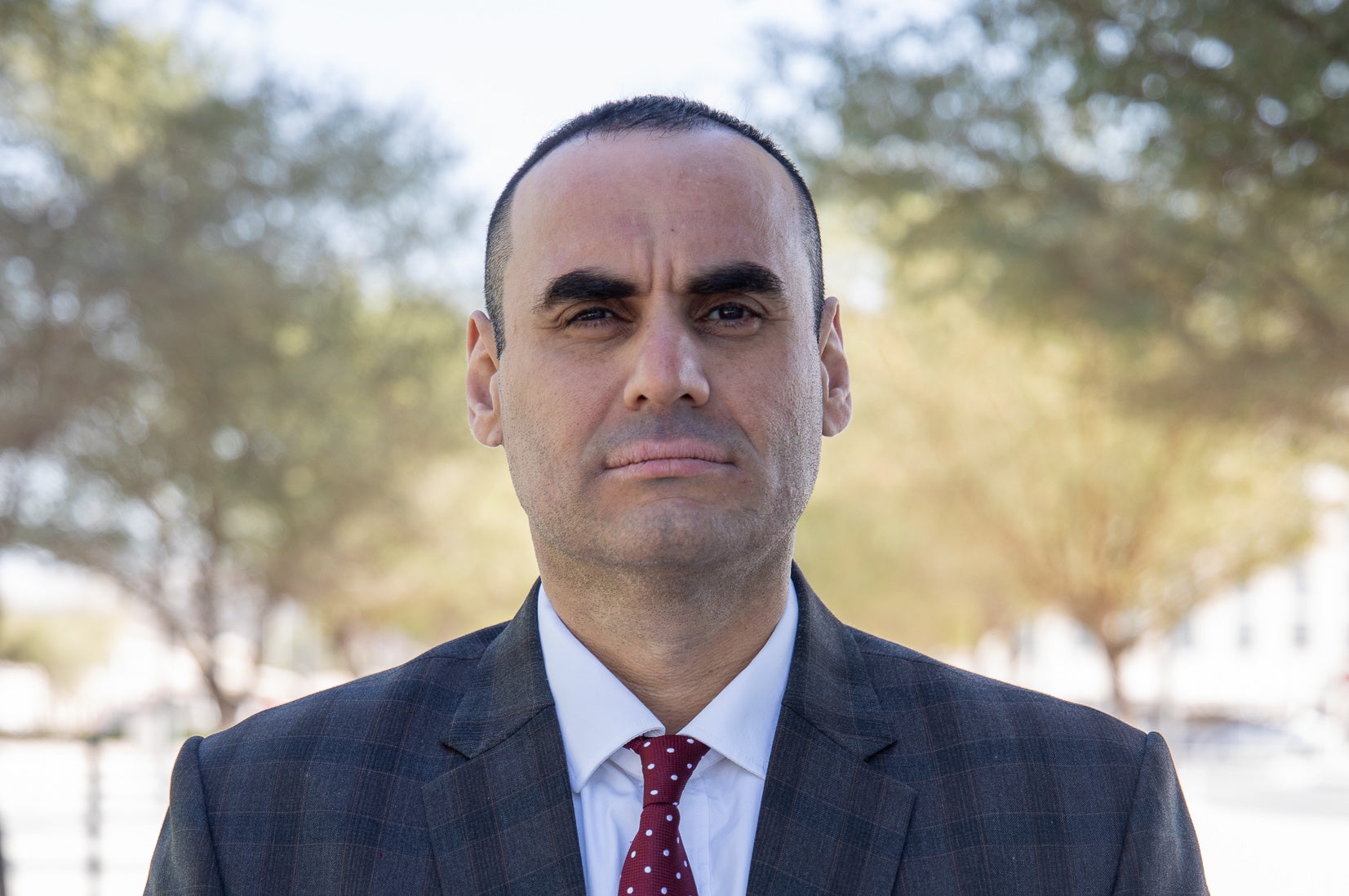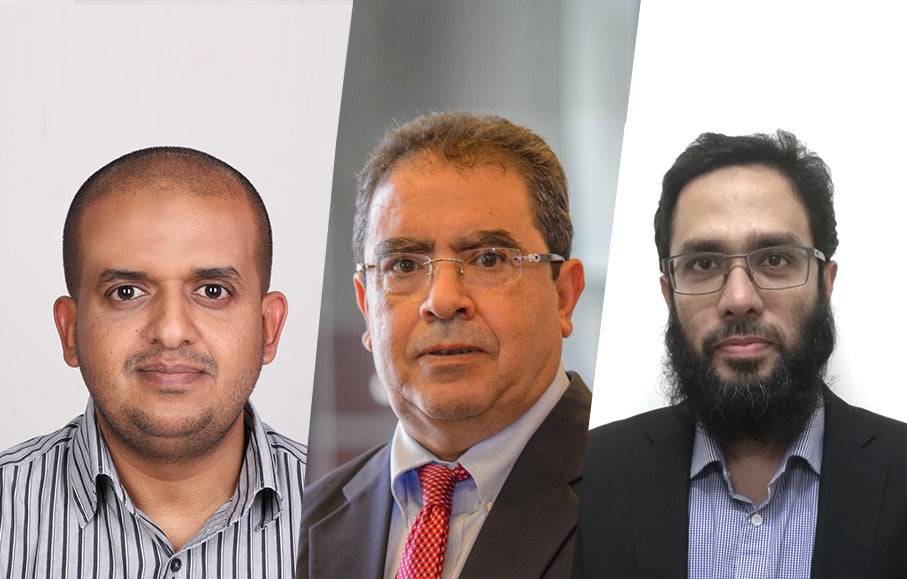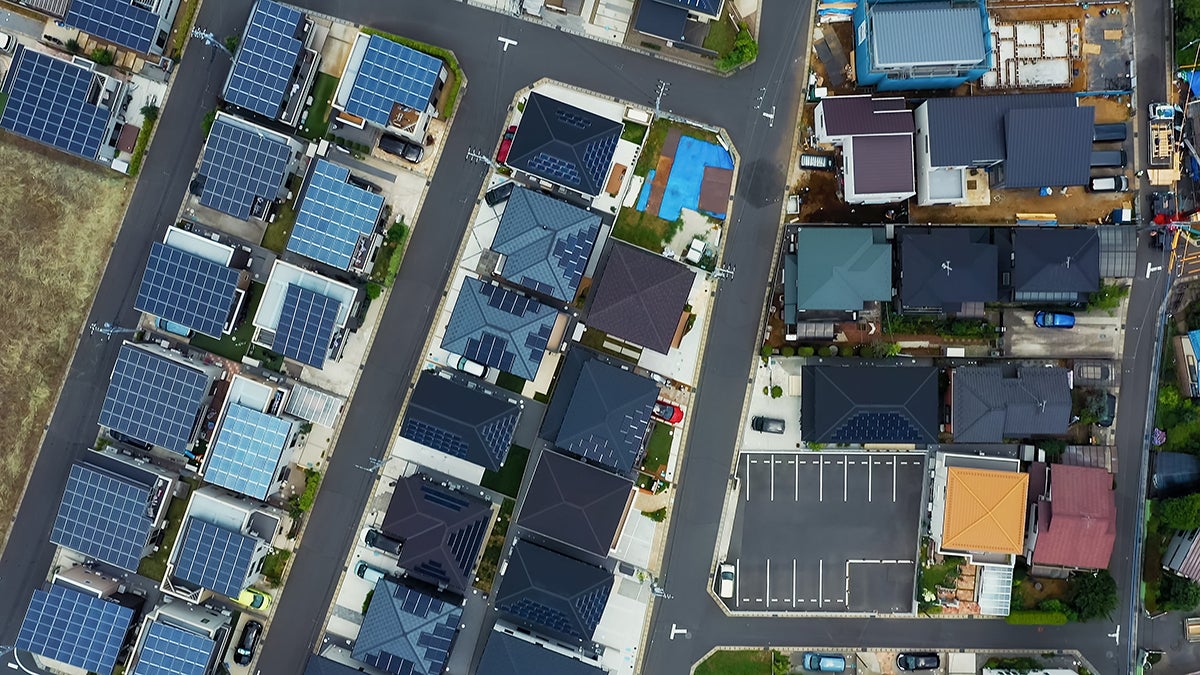
Transforming Smart Cities with Green Energy Applications
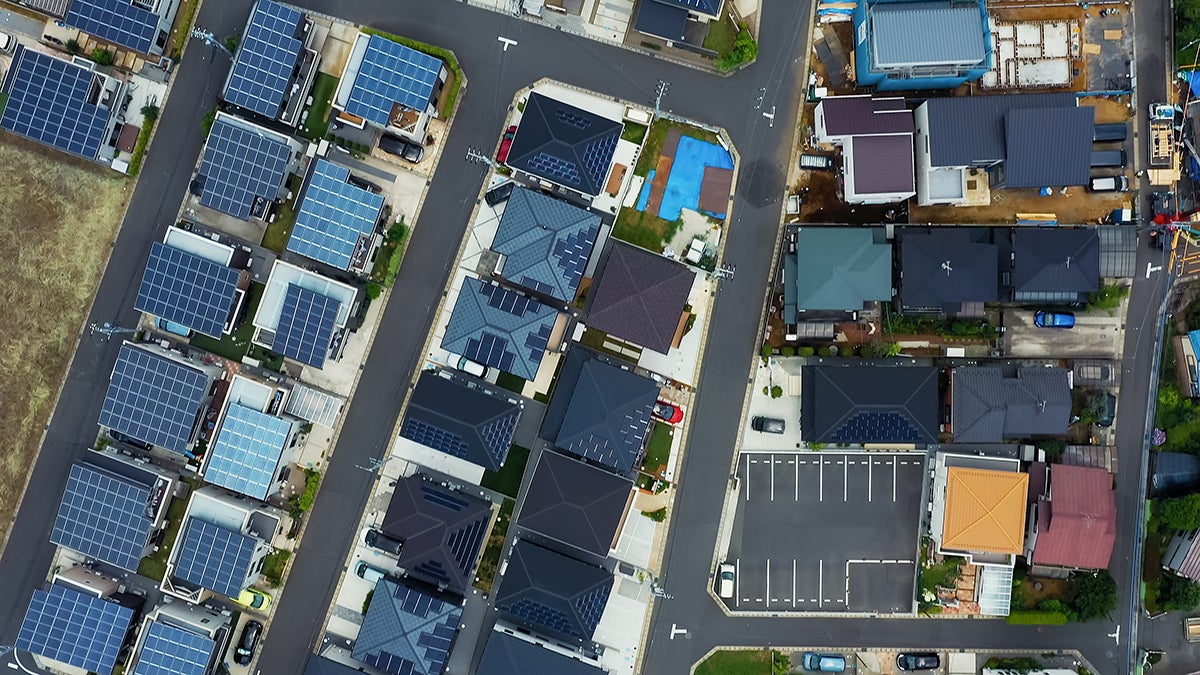
Clean energy and eco-friendly transportation are key elements to reduce greenhouse gas emissions under the Paris Agreement. At the recently concluded COP26 in Glasgow, a new set of pledges is set to accelerate the transition to zero emissions transportation.
Introducing low carbon or carbon-free fuels such as hydrogen can significantly reduce emissions. In fact, if clean fuels or electrified vehicles are not used, the transportation sector’s energy demand is expected to rise by 54% by 2035, which would considerably elevate global demand for fossil fuels.
Encouraging environmentally positive change
Qatar is an example of where the shift is happening very quickly. The sustainable ‘Green Car Initiative’ targets 10% eco-friendly cars on the country’s roads by the year 2030, a vital part of the country’s vision of smart cities - as sustainable, eco-friendly environments.
Electric mobility and the use of electric vehicles (EVs) are highly promising for accelerating Qatar’s transition to energy-efficient and cleaner transportation systems. Promoting and encouraging the wide-scale switch, however, requires the proper infrastructure. That includes expanding the number of charging stations available to road users and ensuring that the stations are driven by renewable energy resources.
Recognizing these needs, research projects being led by Dr. Mohamed Abdallah, Associate Professor, and Dr. Yusuf Bicer, Assistant Professor, at the College of Science and Engineering, Hamad Bin Khalifa University (CSE-HBKU), support Qatar’s efforts through innovative, industry-driven solutions.
Securing the power demands of EV charging stations
A project being led by Dr. Bicer aims to ensure continuous and reliable energy production for the country’s solar powered EV charging stations by integrating hydrogen energy storage systems.
Solar energy availability is intermittent due to day/night cycles, cloudy environments, and foggy/dusty days, which raises a need to bridge the gap between the energy supply and the varying electricity demand of EVs. Solar energy-based charging stations need to be accompanied by suitable storage units to secure the required electricity to satisfy charging needs without expanding or overloading the existing electricity infrastructure.
Hydrogen is a promising and carbon-free energy carrier to serve as a buffer storage and is convertible to electricity on demand via fuel cells. Green hydrogen production from solar energy is among the best solutions for supplying the energy requirements of a sustainable EV charging station.
An innovative approach that optimizes solar energy
Dr. Bicer’s project posits the idea of converting abundant solar energy into two different energy forms: electricity in batteries and chemical energy in hydrogen. With the provision of a hydrogen energy storage system, electricity produced from solar technology such as photovoltaics can fulfill the required power loads despite the fluctuating and random nature of solar energy. This hybrid energy storage configuration will bring several benefits: a more flexible EV charging schedule, long-term energy storage, less battery degradation, eliminating the use of diesel generators, and reducing emissions.
He explains: “Once the project is implemented, current EV charging stations will be more prepared and responsive to charging demands. Green hydrogen storage will optimize the availability of energy during different seasons and months. This pilot project is essential to strengthen experimental and theoretical research studies to innovate the green hydrogen-integrated EV charging stations.”
The project is funded by HBKU’s Innovation Center under the Industrial Innovation Fund 2021. Dr. Bicer’s collaborators are Dr. Abdulla Al Wahedi (KAHRAMAA), Kanda Daisuke (Marubeni Middle East Power), and Carlos Mendez, a PhD candidate at CSE.
How blockchain can create a role for consumers in the green energy market
The proliferation of renewable energy technologies such as EVs within smart cities, as well as solar rooftops, and battery storage are creating new kinds of customers, commonly known as “prosumers”, with the capability of both producing and managing their own energy consumption. By giving prosumers the opportunity to directly sell their surplus of energy to others on a peer-to-peer basis, blockchain could facilitate an open and decentralized energy market; promote renewable energy generation; reduce the sector’s carbon footprint; and help meet the growing demand for green energy.
Blockchain is a promising technology that enables trading in a trustless environment without a need for intermediaries. For the energy sector, blockchain would empower an individual to actively participate in both sides of the market: as an energy supplier and a consumer.
A project led by Dr. Abdallah, in collaboration with the Ministry of Transport and Communications’ TASMU Smart Qatar Program, has developed a system that leverages the use of blockchain, smart contract, and smart meter technologies to manage peer-to-peer energy trading without referring to a central third party.
“The ultimate goal of our project is to create incentives for investments in renewable energy generation. With this approach, more and more local prosumers can be involved in meeting the growing demand for electricity, especially ensuring clean electricity for EVs, balancing the load on the grid, and ensuring an electricity supply for critical facilities. These include hospitals, in case of disaster, network instability, or outage. It can also promote renewable energy generation without making major changes to the existing infrastructure,” Dr. Abdallah explains.
In the context of Qatar’s smart city strategy, the outcomes will contribute to efforts to achieve national sustainability goals, including greenhouse gas emissions reduction targets under Qatar’s National Environment and Climate Change Strategy.
Related News

Statistical Modeling Can Help Us Understand How Phase Two of the Lockdown Lift is Faring

HBKU’s College of Science and Engineering Collaborates with MoTC to Deliver Webinar Series

Human-Machine Interaction: HBKU’s Smart Vision Sensor Aims for Next-Level Intelligence
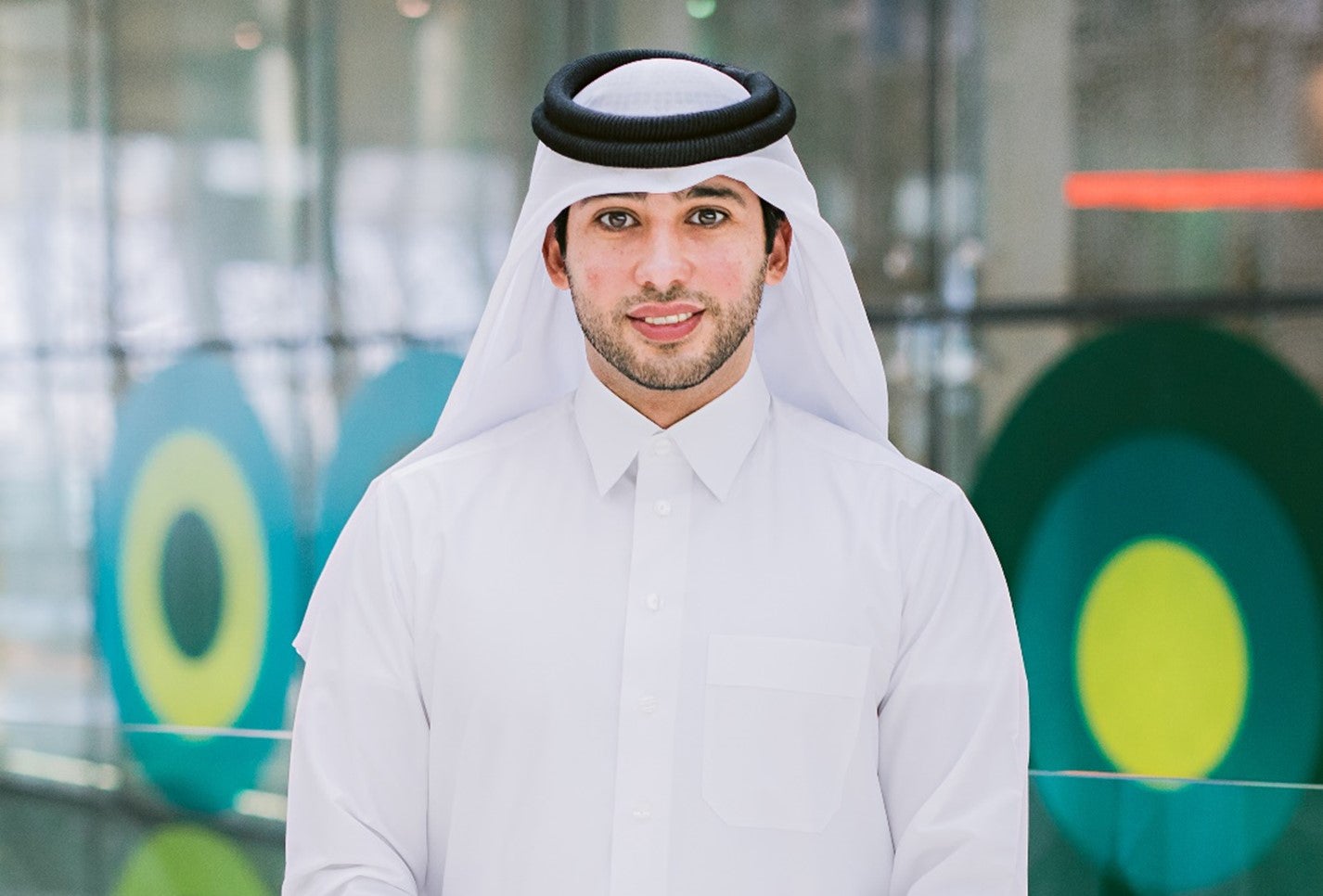
Record-Setting Billion-Cell Reservoir Simulation for Giant Oil and Gas Fields Achieved by HBKU’s College of Science and Engineering

HBKU’s College of Science and Engineering Delivers Training on Health Informatics Research Methods

QF's HBKU and Norwegian Company Yara Sign Agreement to Support Food Security Efforts

Statistical Modeling Can Help Us Understand How Phase Two of the Lockdown Lift is Faring

HBKU’s College of Science and Engineering Collaborates with MoTC to Deliver Webinar Series

Human-Machine Interaction: HBKU’s Smart Vision Sensor Aims for Next-Level Intelligence

Record-Setting Billion-Cell Reservoir Simulation for Giant Oil and Gas Fields Achieved by HBKU’s College of Science and Engineering

HBKU’s College of Science and Engineering Delivers Training on Health Informatics Research Methods

QF's HBKU and Norwegian Company Yara Sign Agreement to Support Food Security Efforts

Statistical Modeling Can Help Us Understand How Phase Two of the Lockdown Lift is Faring

HBKU’s College of Science and Engineering Collaborates with MoTC to Deliver Webinar Series

Human-Machine Interaction: HBKU’s Smart Vision Sensor Aims for Next-Level Intelligence

Record-Setting Billion-Cell Reservoir Simulation for Giant Oil and Gas Fields Achieved by HBKU’s College of Science and Engineering

HBKU’s College of Science and Engineering Delivers Training on Health Informatics Research Methods

QF's HBKU and Norwegian Company Yara Sign Agreement to Support Food Security Efforts

Statistical Modeling Can Help Us Understand How Phase Two of the Lockdown Lift is Faring

HBKU’s College of Science and Engineering Collaborates with MoTC to Deliver Webinar Series

Human-Machine Interaction: HBKU’s Smart Vision Sensor Aims for Next-Level Intelligence

Record-Setting Billion-Cell Reservoir Simulation for Giant Oil and Gas Fields Achieved by HBKU’s College of Science and Engineering

HBKU’s College of Science and Engineering Delivers Training on Health Informatics Research Methods

QF's HBKU and Norwegian Company Yara Sign Agreement to Support Food Security Efforts

Statistical Modeling Can Help Us Understand How Phase Two of the Lockdown Lift is Faring

HBKU’s College of Science and Engineering Collaborates with MoTC to Deliver Webinar Series

Human-Machine Interaction: HBKU’s Smart Vision Sensor Aims for Next-Level Intelligence

Record-Setting Billion-Cell Reservoir Simulation for Giant Oil and Gas Fields Achieved by HBKU’s College of Science and Engineering

HBKU’s College of Science and Engineering Delivers Training on Health Informatics Research Methods

QF's HBKU and Norwegian Company Yara Sign Agreement to Support Food Security Efforts

Statistical Modeling Can Help Us Understand How Phase Two of the Lockdown Lift is Faring

HBKU’s College of Science and Engineering Collaborates with MoTC to Deliver Webinar Series

Human-Machine Interaction: HBKU’s Smart Vision Sensor Aims for Next-Level Intelligence

Record-Setting Billion-Cell Reservoir Simulation for Giant Oil and Gas Fields Achieved by HBKU’s College of Science and Engineering

HBKU’s College of Science and Engineering Delivers Training on Health Informatics Research Methods

QF's HBKU and Norwegian Company Yara Sign Agreement to Support Food Security Efforts

Statistical Modeling Can Help Us Understand How Phase Two of the Lockdown Lift is Faring

HBKU’s College of Science and Engineering Collaborates with MoTC to Deliver Webinar Series

Human-Machine Interaction: HBKU’s Smart Vision Sensor Aims for Next-Level Intelligence

Record-Setting Billion-Cell Reservoir Simulation for Giant Oil and Gas Fields Achieved by HBKU’s College of Science and Engineering

HBKU’s College of Science and Engineering Delivers Training on Health Informatics Research Methods

QF's HBKU and Norwegian Company Yara Sign Agreement to Support Food Security Efforts

Statistical Modeling Can Help Us Understand How Phase Two of the Lockdown Lift is Faring

HBKU’s College of Science and Engineering Collaborates with MoTC to Deliver Webinar Series

Human-Machine Interaction: HBKU’s Smart Vision Sensor Aims for Next-Level Intelligence

Record-Setting Billion-Cell Reservoir Simulation for Giant Oil and Gas Fields Achieved by HBKU’s College of Science and Engineering

HBKU’s College of Science and Engineering Delivers Training on Health Informatics Research Methods

QF's HBKU and Norwegian Company Yara Sign Agreement to Support Food Security Efforts

Statistical Modeling Can Help Us Understand How Phase Two of the Lockdown Lift is Faring

HBKU’s College of Science and Engineering Collaborates with MoTC to Deliver Webinar Series

Human-Machine Interaction: HBKU’s Smart Vision Sensor Aims for Next-Level Intelligence

Record-Setting Billion-Cell Reservoir Simulation for Giant Oil and Gas Fields Achieved by HBKU’s College of Science and Engineering

HBKU’s College of Science and Engineering Delivers Training on Health Informatics Research Methods

QF's HBKU and Norwegian Company Yara Sign Agreement to Support Food Security Efforts

Statistical Modeling Can Help Us Understand How Phase Two of the Lockdown Lift is Faring

HBKU’s College of Science and Engineering Collaborates with MoTC to Deliver Webinar Series

Human-Machine Interaction: HBKU’s Smart Vision Sensor Aims for Next-Level Intelligence

Record-Setting Billion-Cell Reservoir Simulation for Giant Oil and Gas Fields Achieved by HBKU’s College of Science and Engineering

HBKU’s College of Science and Engineering Delivers Training on Health Informatics Research Methods

QF's HBKU and Norwegian Company Yara Sign Agreement to Support Food Security Efforts

Statistical Modeling Can Help Us Understand How Phase Two of the Lockdown Lift is Faring

HBKU’s College of Science and Engineering Collaborates with MoTC to Deliver Webinar Series

Human-Machine Interaction: HBKU’s Smart Vision Sensor Aims for Next-Level Intelligence

Record-Setting Billion-Cell Reservoir Simulation for Giant Oil and Gas Fields Achieved by HBKU’s College of Science and Engineering

HBKU’s College of Science and Engineering Delivers Training on Health Informatics Research Methods

QF's HBKU and Norwegian Company Yara Sign Agreement to Support Food Security Efforts

Statistical Modeling Can Help Us Understand How Phase Two of the Lockdown Lift is Faring

HBKU’s College of Science and Engineering Collaborates with MoTC to Deliver Webinar Series

Human-Machine Interaction: HBKU’s Smart Vision Sensor Aims for Next-Level Intelligence

Record-Setting Billion-Cell Reservoir Simulation for Giant Oil and Gas Fields Achieved by HBKU’s College of Science and Engineering

HBKU’s College of Science and Engineering Delivers Training on Health Informatics Research Methods

QF's HBKU and Norwegian Company Yara Sign Agreement to Support Food Security Efforts

Statistical Modeling Can Help Us Understand How Phase Two of the Lockdown Lift is Faring

HBKU’s College of Science and Engineering Collaborates with MoTC to Deliver Webinar Series

Human-Machine Interaction: HBKU’s Smart Vision Sensor Aims for Next-Level Intelligence

Record-Setting Billion-Cell Reservoir Simulation for Giant Oil and Gas Fields Achieved by HBKU’s College of Science and Engineering

HBKU’s College of Science and Engineering Delivers Training on Health Informatics Research Methods

QF's HBKU and Norwegian Company Yara Sign Agreement to Support Food Security Efforts

Statistical Modeling Can Help Us Understand How Phase Two of the Lockdown Lift is Faring

HBKU’s College of Science and Engineering Collaborates with MoTC to Deliver Webinar Series

Human-Machine Interaction: HBKU’s Smart Vision Sensor Aims for Next-Level Intelligence

Record-Setting Billion-Cell Reservoir Simulation for Giant Oil and Gas Fields Achieved by HBKU’s College of Science and Engineering

HBKU’s College of Science and Engineering Delivers Training on Health Informatics Research Methods

QF's HBKU and Norwegian Company Yara Sign Agreement to Support Food Security Efforts

Statistical Modeling Can Help Us Understand How Phase Two of the Lockdown Lift is Faring

HBKU’s College of Science and Engineering Collaborates with MoTC to Deliver Webinar Series

Human-Machine Interaction: HBKU’s Smart Vision Sensor Aims for Next-Level Intelligence

Record-Setting Billion-Cell Reservoir Simulation for Giant Oil and Gas Fields Achieved by HBKU’s College of Science and Engineering

HBKU’s College of Science and Engineering Delivers Training on Health Informatics Research Methods

QF's HBKU and Norwegian Company Yara Sign Agreement to Support Food Security Efforts

Statistical Modeling Can Help Us Understand How Phase Two of the Lockdown Lift is Faring

HBKU’s College of Science and Engineering Collaborates with MoTC to Deliver Webinar Series

Human-Machine Interaction: HBKU’s Smart Vision Sensor Aims for Next-Level Intelligence

Record-Setting Billion-Cell Reservoir Simulation for Giant Oil and Gas Fields Achieved by HBKU’s College of Science and Engineering

HBKU’s College of Science and Engineering Delivers Training on Health Informatics Research Methods

QF's HBKU and Norwegian Company Yara Sign Agreement to Support Food Security Efforts

Statistical Modeling Can Help Us Understand How Phase Two of the Lockdown Lift is Faring

HBKU’s College of Science and Engineering Collaborates with MoTC to Deliver Webinar Series

Human-Machine Interaction: HBKU’s Smart Vision Sensor Aims for Next-Level Intelligence

Record-Setting Billion-Cell Reservoir Simulation for Giant Oil and Gas Fields Achieved by HBKU’s College of Science and Engineering

HBKU’s College of Science and Engineering Delivers Training on Health Informatics Research Methods

QF's HBKU and Norwegian Company Yara Sign Agreement to Support Food Security Efforts

Statistical Modeling Can Help Us Understand How Phase Two of the Lockdown Lift is Faring

HBKU’s College of Science and Engineering Collaborates with MoTC to Deliver Webinar Series

Human-Machine Interaction: HBKU’s Smart Vision Sensor Aims for Next-Level Intelligence

Record-Setting Billion-Cell Reservoir Simulation for Giant Oil and Gas Fields Achieved by HBKU’s College of Science and Engineering

HBKU’s College of Science and Engineering Delivers Training on Health Informatics Research Methods

QF's HBKU and Norwegian Company Yara Sign Agreement to Support Food Security Efforts

Statistical Modeling Can Help Us Understand How Phase Two of the Lockdown Lift is Faring

HBKU’s College of Science and Engineering Collaborates with MoTC to Deliver Webinar Series

Human-Machine Interaction: HBKU’s Smart Vision Sensor Aims for Next-Level Intelligence

Record-Setting Billion-Cell Reservoir Simulation for Giant Oil and Gas Fields Achieved by HBKU’s College of Science and Engineering

HBKU’s College of Science and Engineering Delivers Training on Health Informatics Research Methods

QF's HBKU and Norwegian Company Yara Sign Agreement to Support Food Security Efforts

Statistical Modeling Can Help Us Understand How Phase Two of the Lockdown Lift is Faring

HBKU’s College of Science and Engineering Collaborates with MoTC to Deliver Webinar Series

Human-Machine Interaction: HBKU’s Smart Vision Sensor Aims for Next-Level Intelligence

Record-Setting Billion-Cell Reservoir Simulation for Giant Oil and Gas Fields Achieved by HBKU’s College of Science and Engineering

HBKU’s College of Science and Engineering Delivers Training on Health Informatics Research Methods

QF's HBKU and Norwegian Company Yara Sign Agreement to Support Food Security Efforts

Statistical Modeling Can Help Us Understand How Phase Two of the Lockdown Lift is Faring

HBKU’s College of Science and Engineering Collaborates with MoTC to Deliver Webinar Series

Human-Machine Interaction: HBKU’s Smart Vision Sensor Aims for Next-Level Intelligence

Record-Setting Billion-Cell Reservoir Simulation for Giant Oil and Gas Fields Achieved by HBKU’s College of Science and Engineering

HBKU’s College of Science and Engineering Delivers Training on Health Informatics Research Methods

QF's HBKU and Norwegian Company Yara Sign Agreement to Support Food Security Efforts

Statistical Modeling Can Help Us Understand How Phase Two of the Lockdown Lift is Faring

HBKU’s College of Science and Engineering Collaborates with MoTC to Deliver Webinar Series

Human-Machine Interaction: HBKU’s Smart Vision Sensor Aims for Next-Level Intelligence

Record-Setting Billion-Cell Reservoir Simulation for Giant Oil and Gas Fields Achieved by HBKU’s College of Science and Engineering

HBKU’s College of Science and Engineering Delivers Training on Health Informatics Research Methods

QF's HBKU and Norwegian Company Yara Sign Agreement to Support Food Security Efforts

Statistical Modeling Can Help Us Understand How Phase Two of the Lockdown Lift is Faring

HBKU’s College of Science and Engineering Collaborates with MoTC to Deliver Webinar Series

Human-Machine Interaction: HBKU’s Smart Vision Sensor Aims for Next-Level Intelligence

Record-Setting Billion-Cell Reservoir Simulation for Giant Oil and Gas Fields Achieved by HBKU’s College of Science and Engineering

HBKU’s College of Science and Engineering Delivers Training on Health Informatics Research Methods

QF's HBKU and Norwegian Company Yara Sign Agreement to Support Food Security Efforts

Statistical Modeling Can Help Us Understand How Phase Two of the Lockdown Lift is Faring

HBKU’s College of Science and Engineering Collaborates with MoTC to Deliver Webinar Series

Human-Machine Interaction: HBKU’s Smart Vision Sensor Aims for Next-Level Intelligence

Record-Setting Billion-Cell Reservoir Simulation for Giant Oil and Gas Fields Achieved by HBKU’s College of Science and Engineering

HBKU’s College of Science and Engineering Delivers Training on Health Informatics Research Methods

QF's HBKU and Norwegian Company Yara Sign Agreement to Support Food Security Efforts

Statistical Modeling Can Help Us Understand How Phase Two of the Lockdown Lift is Faring

HBKU’s College of Science and Engineering Collaborates with MoTC to Deliver Webinar Series

Human-Machine Interaction: HBKU’s Smart Vision Sensor Aims for Next-Level Intelligence

Record-Setting Billion-Cell Reservoir Simulation for Giant Oil and Gas Fields Achieved by HBKU’s College of Science and Engineering

HBKU’s College of Science and Engineering Delivers Training on Health Informatics Research Methods

QF's HBKU and Norwegian Company Yara Sign Agreement to Support Food Security Efforts

Statistical Modeling Can Help Us Understand How Phase Two of the Lockdown Lift is Faring

HBKU’s College of Science and Engineering Collaborates with MoTC to Deliver Webinar Series

Human-Machine Interaction: HBKU’s Smart Vision Sensor Aims for Next-Level Intelligence

Record-Setting Billion-Cell Reservoir Simulation for Giant Oil and Gas Fields Achieved by HBKU’s College of Science and Engineering

HBKU’s College of Science and Engineering Delivers Training on Health Informatics Research Methods

QF's HBKU and Norwegian Company Yara Sign Agreement to Support Food Security Efforts

Statistical Modeling Can Help Us Understand How Phase Two of the Lockdown Lift is Faring

HBKU’s College of Science and Engineering Collaborates with MoTC to Deliver Webinar Series

Human-Machine Interaction: HBKU’s Smart Vision Sensor Aims for Next-Level Intelligence

Record-Setting Billion-Cell Reservoir Simulation for Giant Oil and Gas Fields Achieved by HBKU’s College of Science and Engineering

HBKU’s College of Science and Engineering Delivers Training on Health Informatics Research Methods

QF's HBKU and Norwegian Company Yara Sign Agreement to Support Food Security Efforts

Statistical Modeling Can Help Us Understand How Phase Two of the Lockdown Lift is Faring

HBKU’s College of Science and Engineering Collaborates with MoTC to Deliver Webinar Series

Human-Machine Interaction: HBKU’s Smart Vision Sensor Aims for Next-Level Intelligence

Record-Setting Billion-Cell Reservoir Simulation for Giant Oil and Gas Fields Achieved by HBKU’s College of Science and Engineering

HBKU’s College of Science and Engineering Delivers Training on Health Informatics Research Methods

QF's HBKU and Norwegian Company Yara Sign Agreement to Support Food Security Efforts

Statistical Modeling Can Help Us Understand How Phase Two of the Lockdown Lift is Faring

HBKU’s College of Science and Engineering Collaborates with MoTC to Deliver Webinar Series

Human-Machine Interaction: HBKU’s Smart Vision Sensor Aims for Next-Level Intelligence

Record-Setting Billion-Cell Reservoir Simulation for Giant Oil and Gas Fields Achieved by HBKU’s College of Science and Engineering

HBKU’s College of Science and Engineering Delivers Training on Health Informatics Research Methods

QF's HBKU and Norwegian Company Yara Sign Agreement to Support Food Security Efforts

Statistical Modeling Can Help Us Understand How Phase Two of the Lockdown Lift is Faring

HBKU’s College of Science and Engineering Collaborates with MoTC to Deliver Webinar Series

Human-Machine Interaction: HBKU’s Smart Vision Sensor Aims for Next-Level Intelligence

Record-Setting Billion-Cell Reservoir Simulation for Giant Oil and Gas Fields Achieved by HBKU’s College of Science and Engineering

HBKU’s College of Science and Engineering Delivers Training on Health Informatics Research Methods

QF's HBKU and Norwegian Company Yara Sign Agreement to Support Food Security Efforts

Statistical Modeling Can Help Us Understand How Phase Two of the Lockdown Lift is Faring

HBKU’s College of Science and Engineering Collaborates with MoTC to Deliver Webinar Series

Human-Machine Interaction: HBKU’s Smart Vision Sensor Aims for Next-Level Intelligence

Record-Setting Billion-Cell Reservoir Simulation for Giant Oil and Gas Fields Achieved by HBKU’s College of Science and Engineering

HBKU’s College of Science and Engineering Delivers Training on Health Informatics Research Methods

QF's HBKU and Norwegian Company Yara Sign Agreement to Support Food Security Efforts

Statistical Modeling Can Help Us Understand How Phase Two of the Lockdown Lift is Faring

HBKU’s College of Science and Engineering Collaborates with MoTC to Deliver Webinar Series

Human-Machine Interaction: HBKU’s Smart Vision Sensor Aims for Next-Level Intelligence

Record-Setting Billion-Cell Reservoir Simulation for Giant Oil and Gas Fields Achieved by HBKU’s College of Science and Engineering

HBKU’s College of Science and Engineering Delivers Training on Health Informatics Research Methods

QF's HBKU and Norwegian Company Yara Sign Agreement to Support Food Security Efforts

Statistical Modeling Can Help Us Understand How Phase Two of the Lockdown Lift is Faring

HBKU’s College of Science and Engineering Collaborates with MoTC to Deliver Webinar Series

Human-Machine Interaction: HBKU’s Smart Vision Sensor Aims for Next-Level Intelligence

Record-Setting Billion-Cell Reservoir Simulation for Giant Oil and Gas Fields Achieved by HBKU’s College of Science and Engineering

HBKU’s College of Science and Engineering Delivers Training on Health Informatics Research Methods

QF's HBKU and Norwegian Company Yara Sign Agreement to Support Food Security Efforts

Statistical Modeling Can Help Us Understand How Phase Two of the Lockdown Lift is Faring

HBKU’s College of Science and Engineering Collaborates with MoTC to Deliver Webinar Series

Human-Machine Interaction: HBKU’s Smart Vision Sensor Aims for Next-Level Intelligence

Record-Setting Billion-Cell Reservoir Simulation for Giant Oil and Gas Fields Achieved by HBKU’s College of Science and Engineering

HBKU’s College of Science and Engineering Delivers Training on Health Informatics Research Methods

QF's HBKU and Norwegian Company Yara Sign Agreement to Support Food Security Efforts

Statistical Modeling Can Help Us Understand How Phase Two of the Lockdown Lift is Faring

HBKU’s College of Science and Engineering Collaborates with MoTC to Deliver Webinar Series

Human-Machine Interaction: HBKU’s Smart Vision Sensor Aims for Next-Level Intelligence

Record-Setting Billion-Cell Reservoir Simulation for Giant Oil and Gas Fields Achieved by HBKU’s College of Science and Engineering

HBKU’s College of Science and Engineering Delivers Training on Health Informatics Research Methods

QF's HBKU and Norwegian Company Yara Sign Agreement to Support Food Security Efforts

Statistical Modeling Can Help Us Understand How Phase Two of the Lockdown Lift is Faring

HBKU’s College of Science and Engineering Collaborates with MoTC to Deliver Webinar Series

Human-Machine Interaction: HBKU’s Smart Vision Sensor Aims for Next-Level Intelligence

Record-Setting Billion-Cell Reservoir Simulation for Giant Oil and Gas Fields Achieved by HBKU’s College of Science and Engineering

HBKU’s College of Science and Engineering Delivers Training on Health Informatics Research Methods

QF's HBKU and Norwegian Company Yara Sign Agreement to Support Food Security Efforts

Statistical Modeling Can Help Us Understand How Phase Two of the Lockdown Lift is Faring

HBKU’s College of Science and Engineering Collaborates with MoTC to Deliver Webinar Series

Human-Machine Interaction: HBKU’s Smart Vision Sensor Aims for Next-Level Intelligence

Record-Setting Billion-Cell Reservoir Simulation for Giant Oil and Gas Fields Achieved by HBKU’s College of Science and Engineering

HBKU’s College of Science and Engineering Delivers Training on Health Informatics Research Methods

QF's HBKU and Norwegian Company Yara Sign Agreement to Support Food Security Efforts

Statistical Modeling Can Help Us Understand How Phase Two of the Lockdown Lift is Faring

HBKU’s College of Science and Engineering Collaborates with MoTC to Deliver Webinar Series

Human-Machine Interaction: HBKU’s Smart Vision Sensor Aims for Next-Level Intelligence

Record-Setting Billion-Cell Reservoir Simulation for Giant Oil and Gas Fields Achieved by HBKU’s College of Science and Engineering

HBKU’s College of Science and Engineering Delivers Training on Health Informatics Research Methods

QF's HBKU and Norwegian Company Yara Sign Agreement to Support Food Security Efforts

Statistical Modeling Can Help Us Understand How Phase Two of the Lockdown Lift is Faring

HBKU’s College of Science and Engineering Collaborates with MoTC to Deliver Webinar Series

Human-Machine Interaction: HBKU’s Smart Vision Sensor Aims for Next-Level Intelligence

Record-Setting Billion-Cell Reservoir Simulation for Giant Oil and Gas Fields Achieved by HBKU’s College of Science and Engineering

HBKU’s College of Science and Engineering Delivers Training on Health Informatics Research Methods

QF's HBKU and Norwegian Company Yara Sign Agreement to Support Food Security Efforts

Statistical Modeling Can Help Us Understand How Phase Two of the Lockdown Lift is Faring

HBKU’s College of Science and Engineering Collaborates with MoTC to Deliver Webinar Series

Human-Machine Interaction: HBKU’s Smart Vision Sensor Aims for Next-Level Intelligence

Record-Setting Billion-Cell Reservoir Simulation for Giant Oil and Gas Fields Achieved by HBKU’s College of Science and Engineering

HBKU’s College of Science and Engineering Delivers Training on Health Informatics Research Methods

QF's HBKU and Norwegian Company Yara Sign Agreement to Support Food Security Efforts

Statistical Modeling Can Help Us Understand How Phase Two of the Lockdown Lift is Faring






